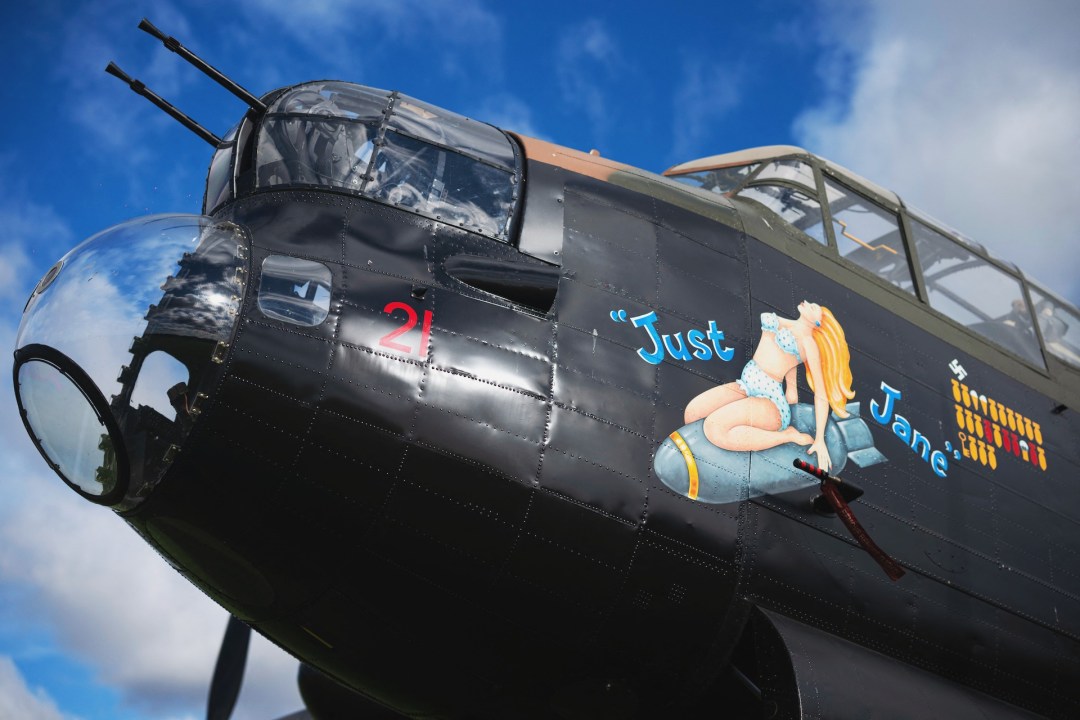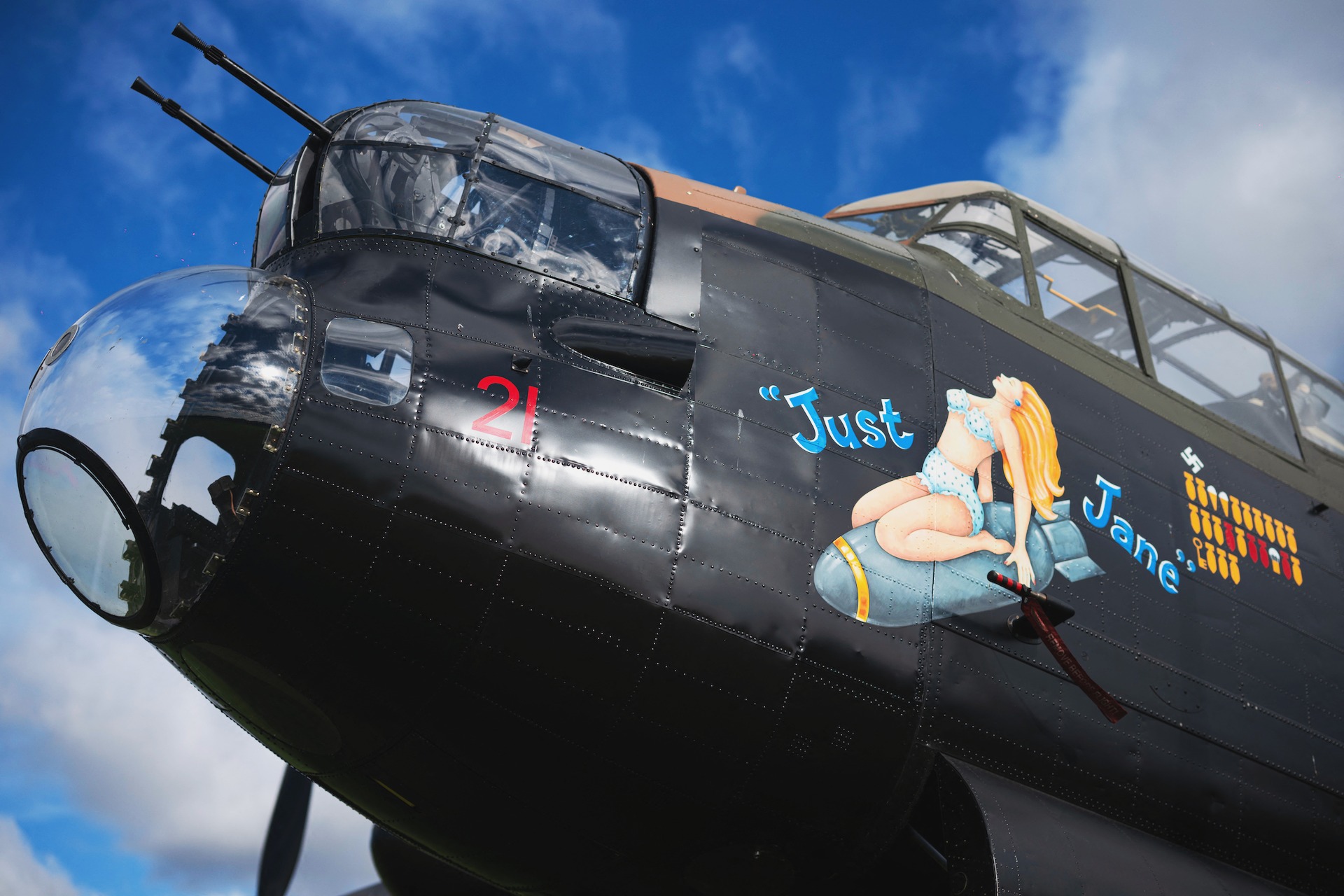There were many tributes when John ‘Paddy’ Hemingway, the last surviving fighter pilot of the Battle of Britain, died in March. Prince William said he was saddened about the death of the ‘last of The Few’ while the prime minister saluted Hemingway’s ‘extraordinary life’. There were no such statements in February on the death of Jack Harris, believed to have been the last surviving Lancaster bomber pilot.
Official indifference to those who served in Bomber Command is not new. Churchill said little about the bomber offensive in his war memoirs, seeking to distance himself politically from the widespread destruction wrought by his own decision to focus on bombing as a way of hitting back against Germany, and as a method to convince the US that Britain could fight on. It took a long campaign by families and veterans before an official memorial to the aircrew opened in London almost 70 years after the war. This weekend, we should remember Bomber Command’s hard-fought contribution to victory.
Churchill’s words praising ‘The Few’ in 1940 are actually misunderstood; he spoke not just about Fighter Command, but about all RAF airmen: ‘undaunted by odds, unwearied in their constant challenge and mortal danger’. In lauding the ‘brilliant actions’ of the fighter pilots in the Battle of Britain he asked that the public to also recognise the bravery of the bomber squadrons who ‘travel far into Germany, find their targets in the darkness… often under the heaviest fire, often with serious loss.’
Opened in 2018, the International Bomber Command Centre in Lincolnshire is a memorial to Bomber Command. Sitting on a limestone bluff outside the city of Lincoln, a central metal spire – the same length as a Lancaster’s wingspan – recalls those the parish churches by which the crews navigated across ‘bomber county’. The centre looks out over Lincoln cathedral, sight of which told returning airmen they were almost home. For many, the cathedral was their final glimpse of their island.
Churchill himself recognised early in the war that although ‘fighters are our salvation… bombers alone provide the means of victory.’ Strategic bombing – long-range, independent air power applied directly, relentlessly and ruthlessly against the enemy’s critical economic and military infrastructure – was at the heart of British strategy. The US agreed, forming a combined offensive from 1943.
Professor Richard Overy, historian of Bomber Command, wrote that ‘it has always been fashionable to see the combined offensive as a failure. Yet its effect was to distort German strategy and economic capability decisively between 1943 and 1945.’ Allied bombing forced Germany to focus on homeland defence, helped destroy its air force, and placed a ceiling on its arms production. It disturbed German morale while sustaining that of the allies (Bomber Command was extremely popular with the public) and providing hope for those living under occupation. Bombing also probably shortened the war by months, sparing millions of military and civilian lives. Although air power didn’t win the war alone as its fiercest adherents hoped, its impact was recognised by Hitler himself who, in his bunker, told his foreign minister that ‘the real military cause of defeat’ was failure of the German air force. Other senior Nazis agreed.
It took a tremendous national effort to form and wield this offensive hammer. Approximately one million men and women served in or supported Bomber Command. From a modest offensive force in 1939, by the end of the war Britain could put 1,500 bombers in the air night after night. It operated from 100 bases, 27 in Lincolnshire alone. The centre takes visitors through 24 hours of a British bombing mission on one of these austere bases, detailing the extensive preparations by ground staff to give the aircrew the best fighting chance and explaining the strain felt waiting for their return.
Some 125,000 aircrew volunteered to serve in Bomber Command. Their average age was 23 but the youngest was 16 and the oldest in their sixties. As Churchill noted: ‘the moral tests to which the crew of a bomber were subjected reached the extreme limits of human valour and sacrifice.’ The crew understood the severe dangers involved and were also highly superstitious; the centre shows their personal memorabilia and lucky charms.
The flying was extremely hazardous. During the war, 44 per cent of aircrew were killed on operations, 12 per cent were killed or wounded in non-operational accidents, and 13 per cent became prisoners of war. The names of 58,000 Bomber Command dead, killed in the air or on the ground, are remembered on metal walls surrounding the spire. Memorial stones from families, friends and associations pay tribute to the fallen. Videos tells their stories and fate while an online database shares details of their service worldwide; 40 per cent of Bomber Command came from Canada, Australia and New Zealand. A planned learning centre will help bring the story to future generations. Visitor numbers have increased year-on-year since opening.
The centre dispassionately discusses the efficacy of bombing, the ethics of targeting cities, and of course Dresden
In the interest of reconciliation, the centre encourages an open and frank dialogue about Bomber Command. It doesn’t shy away from confronting the human consequences of allied bombing. The RAF and American aircraft dropped 2.5 million tons of bombs on mainland Europe. Between 350,000 to 500,000 Germans died as a result, with more civilians dying in Italy, France, Holland and Belgium. The Oxford college on whose land the Centre sits required, in return for granting long-term lease, that due consideration be given to their perspective.
Accordingly, the centre dispassionately discusses the efficacy of bombing, the ethics of targeting cities, and of course Dresden. There will always be disagreement between those who believe that, in a total war, the ends – the destruction of Nazi Germany – justified the means used, and those appalled by proud democracies adopting what they see as a morally indefensible strategy of deliberately targeting German workers. Visitors are encouraged to make up their own minds. There is little triumphalism.
On Monday the last flying Lancaster bomber in the UK will fly down the Mall as part of a flypast. There are very few surviving members of Bomber Command left. This VE Day, pay tribute to them, recognise their service, remember the fallen, and hope for lasting reconciliation with past enemies.








Comments